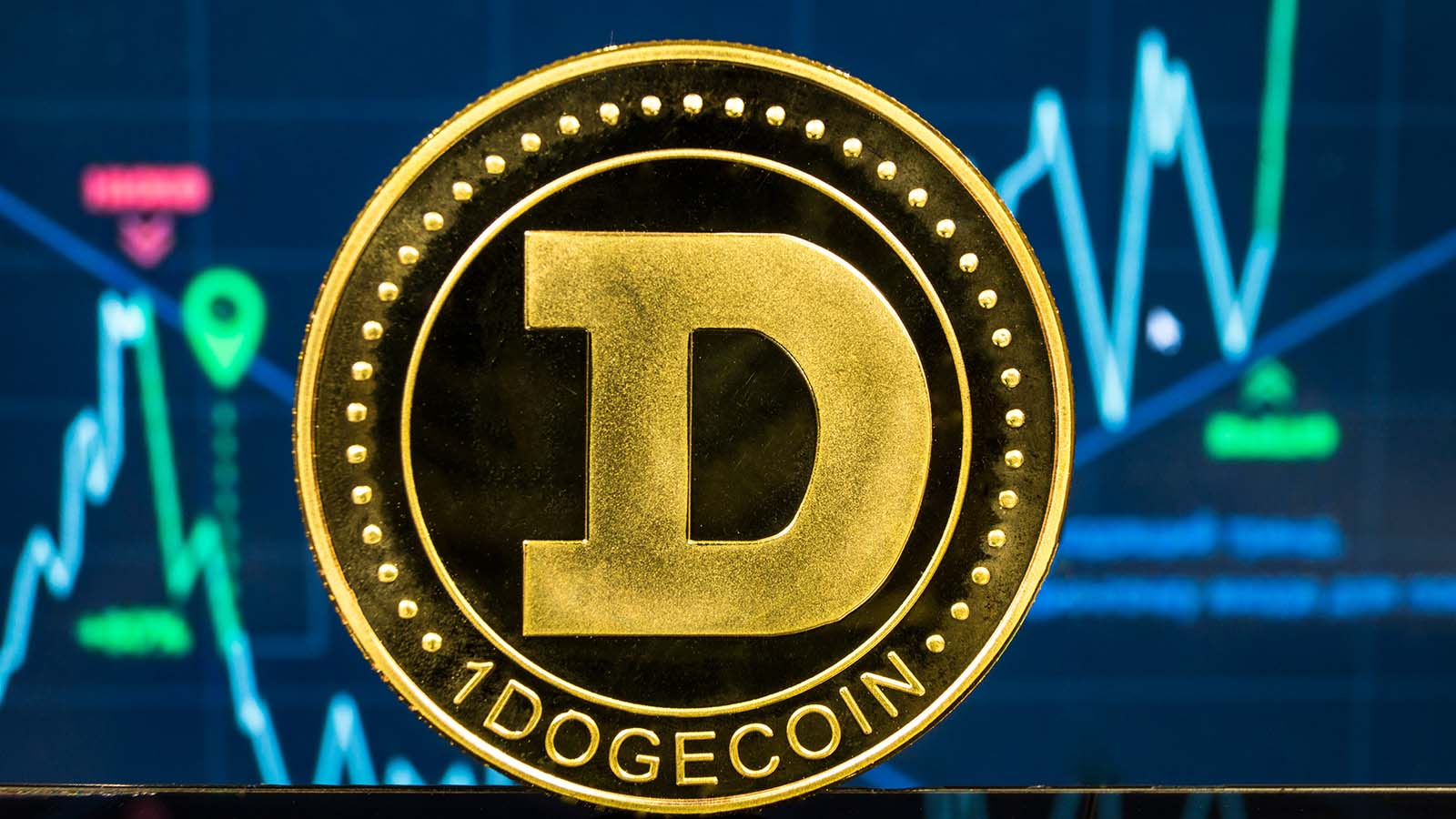
The Ukrainian government has started accepting cryptocurrency donations, including Bitcoin (BTC-USD), Ethereum (ETH-USD), Polkadot (DOT-USD), and now Dogecoin (DOGE-USD). This is a major event, especially for DOGE-USD.
Source: Shutterstock
The donations have already raised $20 million, as of March 2, according to Decrypt online magazine. With the recent addition of Dogecoin that could rise significantly.
Presumably, this means that the money can be used directly for purchases of items that the Ukrainian government needs. It is also highly possible that the government could use these cryptocurrencies to directly purchase goods and supplies that they desperately need.
This also implies that Dogecoin is now widely seen as a major cryptocurrency, useful for a wide variety of transactions, including international donations. It puts Dogecoin in a dignified group of cryptos that others now see as useful in crisis transactions and situations.
How It Started
On March 2, the Vice Prime Minister of Ukraine, Mykhailo Fedorov, posted a tweet promoting Dogecoin donations.
In the tweet Fedorov said: “Now even meme can support our army and save lives from Russian invaders. $DOGE owners of the world, @elonmusk, @BillyM2k, let’s do it.”
He also included the official Ukrainian Dogecoin wallet address for Dogecoin donations: DS76K9uJJzQjCFvAbpPGtFerp1qkJoeLwL.
CryptoPotato magazine wrote on March 2 that $35 million has been received by the government from digital currency donations. It also wrote that the Ukrainian government was now also accepting Solana (SOL-USD) donations.
The article also said that Polkadot’s founder, Grant Wood, had directly sent $5 million in Polkadot donations to the Ukrainian government. CryptoPotato wrote: “‘This will certainly contribute to the Ukrainian victory as well as support civil people,’ Fedorov said in response to the donation.”
If this takes off and begins to snowball it could begin to show a brand new use case for popular cryptocurrencies like Dogecoin, Solana, Bitcoin, etc. It is a quick and convenient way to transfer money directly to a person or even government in dire need. They can use the digital assets to either pay for or convert into “fiat” money to pay for needed items.
Watch Out for Donation Scams
However, on March 3, Bloomberg had a slightly more critical article about the crypto donations. Donations are pouring in, and are a new and welcome resource in Ukraine’s time of crisis. Bloomberg verified more than $28.5 million in donations to Ukraine’s government as of March 4, Thursday morning. It said that other sources such as blockchain analytics firm Elliptic put the total closer to $43 million.
The Ukrainian government was going to do an “airdrop” to reward donations. Ukraine later canceled the airdrop as scam operators tried to muscle in on the action. Elliptic said that a hacker had sent seven billion newly minted tokens to Ukraine’s Ethereum address. But it contained permission allowing the hacker to control the tokens from whichever wallet received them. Any tokens then sent from the Ukraine address would appear to have been transferred by the government, but the hacker was still in control.
Bloomberg wrote that this resulted in an “uptick in scams during the fundraising process, as incredibly adept digital attackers target people’s goodwill in seeking to do what they can to help the cause.”
One typical scam is that people are substituting out the government wallet addresses for their own and then asking for donations. So make sure, if you are going to donate Dogecoin use the address in the original tweet I referred to above. Or, if you plan on donating using a different crypto, always double check the wallet address with a verified source first.
What This Means for Dogecoin
Nevertheless, this is still a major new and creative use of cryptocurrencies like Dogecoin.
Despite the scams, it looks like the effort by the Ukrainian government will be successful in raising funds via crypto currencies.
This will result in much-needed donations to help them fight the Russians.
On the date of publication, Mark Hake did not hold (either directly or indirectly) any positions in the securities mentioned in this article. The opinions expressed in this article are those of the writer, subject to the InvestorPlace.com Publishing Guidelines.
This news is republished from another source. You can check the original article here



